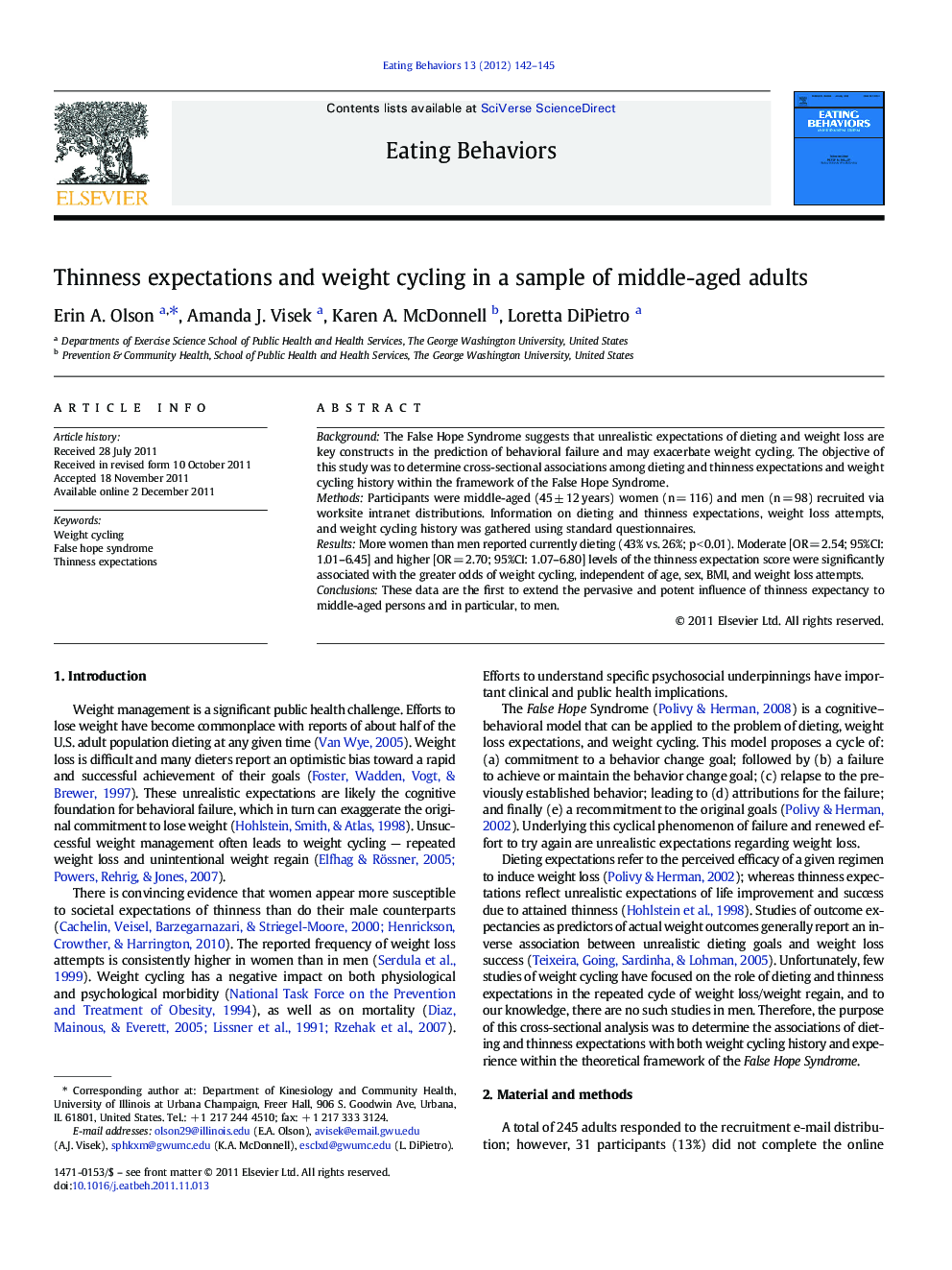| Article ID | Journal | Published Year | Pages | File Type |
|---|---|---|---|---|
| 906694 | Eating Behaviors | 2012 | 4 Pages |
BackgroundThe False Hope Syndrome suggests that unrealistic expectations of dieting and weight loss are key constructs in the prediction of behavioral failure and may exacerbate weight cycling. The objective of this study was to determine cross-sectional associations among dieting and thinness expectations and weight cycling history within the framework of the False Hope Syndrome.MethodsParticipants were middle-aged (45 ± 12 years) women (n = 116) and men (n = 98) recruited via worksite intranet distributions. Information on dieting and thinness expectations, weight loss attempts, and weight cycling history was gathered using standard questionnaires.ResultsMore women than men reported currently dieting (43% vs. 26%; p < 0.01). Moderate [OR = 2.54; 95%CI: 1.01–6.45] and higher [OR = 2.70; 95%CI: 1.07–6.80] levels of the thinness expectation score were significantly associated with the greater odds of weight cycling, independent of age, sex, BMI, and weight loss attempts.ConclusionsThese data are the first to extend the pervasive and potent influence of thinness expectancy to middle-aged persons and in particular, to men.
► Expectation, BMI, and weight loss tries are weight cycling experience determinants. ► Higher expectations were associated with the greater odds of weight cycling. ► Expectations were higher in those who experienced weight cycling.
